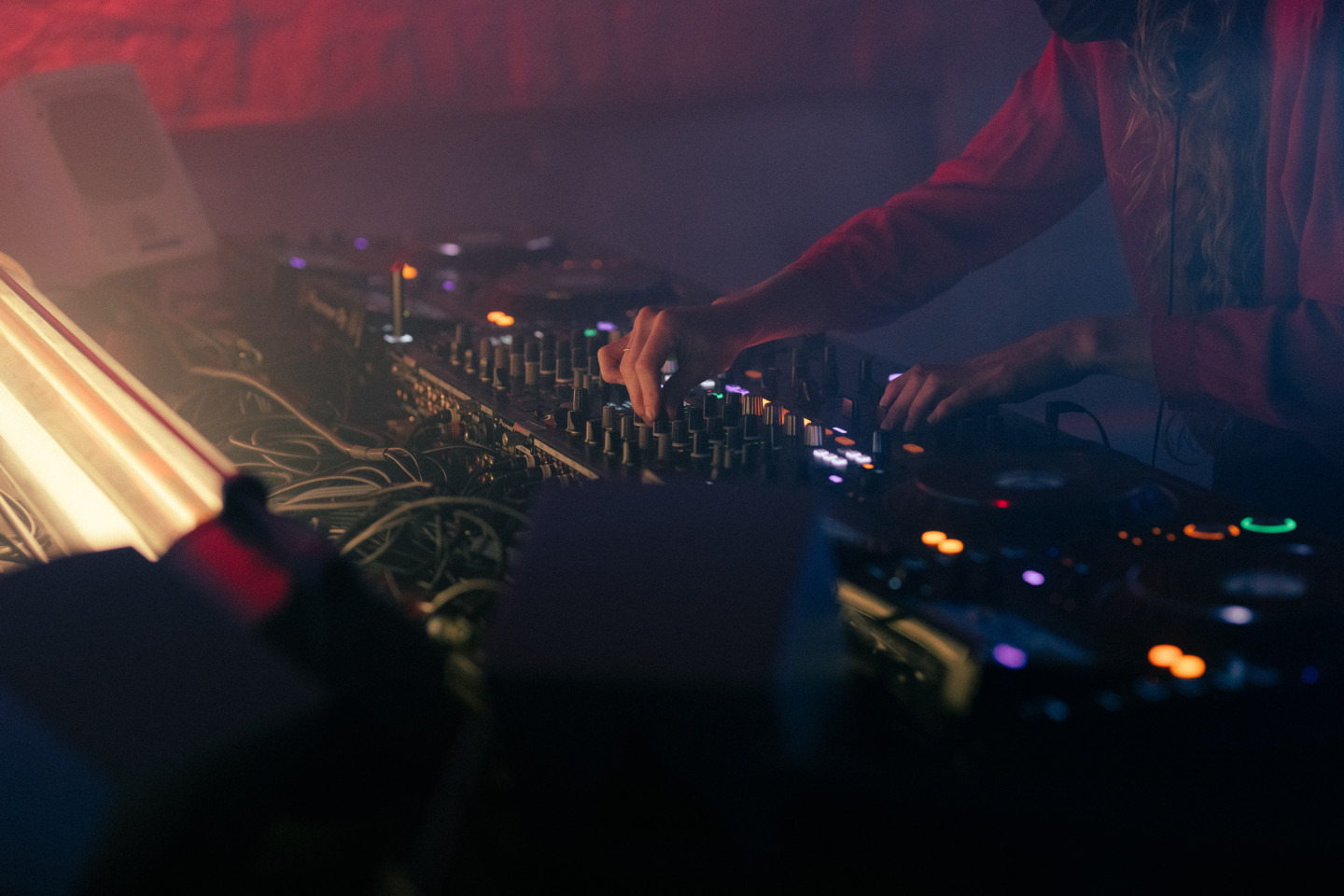Words by Leendert Sonnevelt
Within the art of the DJ, playing back-to-back is a critical category of its own. Dekmantel Connects – live in your living room from the 14th until the 23rd of December – will be all about showcasing that and, mostly, experimenting with it. For our series of DJ shows, established names and rising talents are joining forces to play together, each local legend on their own decks. Ahead of these special sets, we got you a taste of what’s to come with experimental selectors Lena Willikens and Merel Rhizoom, and club connoisseurs Sandrien and Fafi Abdel Nour.
Lena Willikens & Merel Rhizoom
Hi Lena, hi Merel. How have you been and how have the past months been for you?
Lena Willikens: Yeah, I actually wanted to ask Merel about this. When was the last time you played for a dancefloor crowd?
Merel Rhizoom: It was last summer at two small festivals in France. All very DIY, people were a bit like ‘fuck it’ and for me it was great to play for a crowd again.
Lena Willikens: Did you have problems or moral questions deciding to play or not?
Merel Rhizoom: Of course I was considering these things for myself. I think collective action and following government regulations as much as possible are important, but can you follow all rules at all times?
Lena Willikens: Sometimes the rules don’t make sense, so for me it wasn’t always about that. I want to act responsibly and I had a dilemma with this. I played one outdoor festival in Italy in the summer, where everyone was wearing a mask, as well as an outdoor party at OXI in Berlin. Even with everyone wearing masks, you do participate in something that could be dangerous. That’s so contrary to what I actually want; to give people a nice experience. On the other hand, there is a need to party and especially at all the illegal parties people won’t follow the rules, which is more complicated and dangerous.
Berlin did have quite a few outdoor parties with masks, unlike Amsterdam.
Lena Willikens: Yes, that’s because the Dutch people were misinformed! Only lately this has started to change, but they were telling folks that masks aren’t making any difference. So ridiculous!
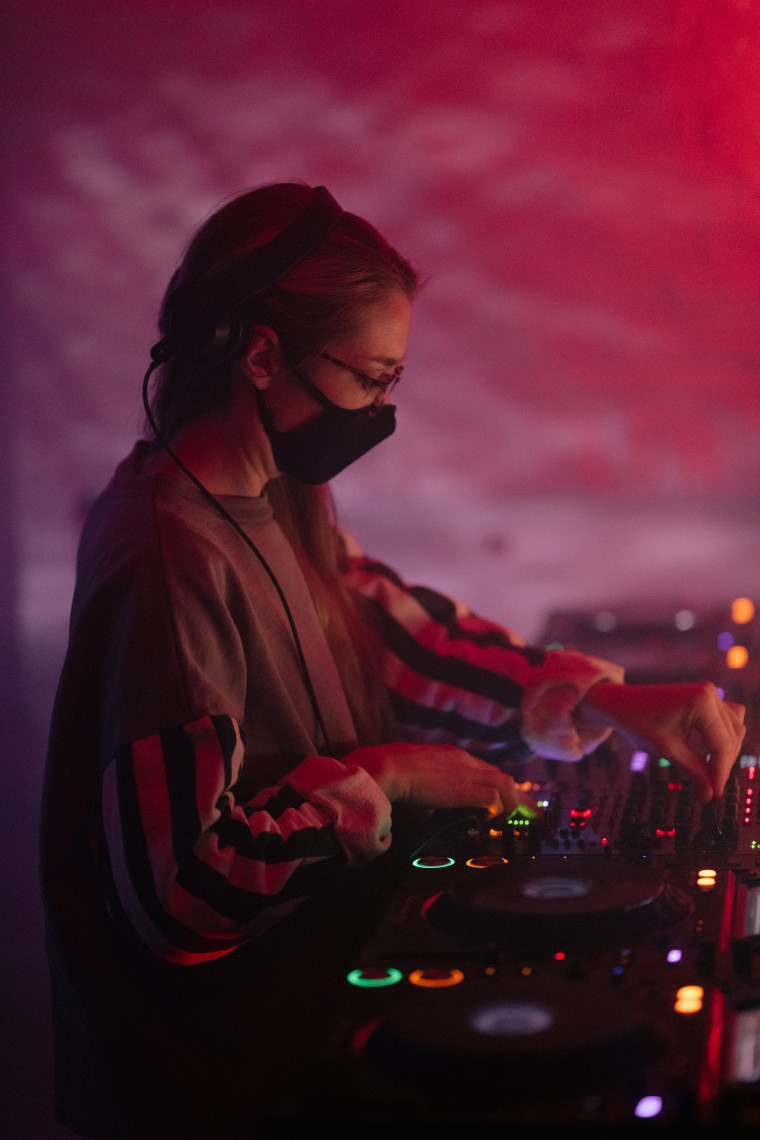
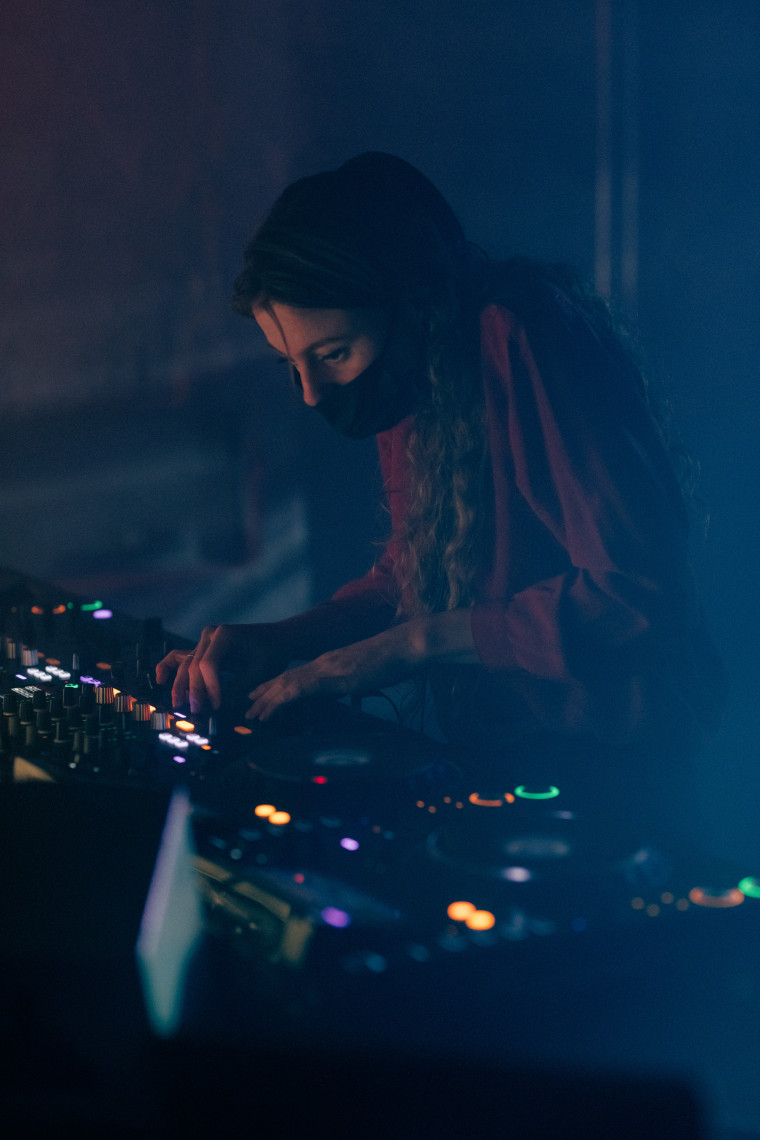
Have you stayed in touch with your community?
Merel Rhizoom: I speak to some artists and friends online but it seems like most communication is happening on social media right now. I’m not so much into that because it’s addictive, even though as an artist maybe I should be. These months have been peaceful for me; I’ve been working on music and writing my thesis, finding a rhythm for myself.
"The idea to work together is so much more interesting than to battle each other. […] We're a team, we have a conversation and we exchange things — you can even call it symbiosis." - Lena Willikens
What are you writing your thesis on? Is it related to music?
Merel Rhizoom: Yes! It’s about the experience of listening: how we can understand sound as timbre and musical sense in relation to the sounds we hear. It’s quite complex, I study philosophy and it was nice to dive into this subject – the phenomenology of sound and music – for some months.
Have either of you done any livestreams?
Lena Willikens: Yes, I did one for Rush Hour and one for Unlimited Nation. Playing dance music alone at home, without dancers to address, almost feels nostalgic. Even playing for people with masks on was different for me, it’s hard to enjoy.
Merel Rhizoom: What made it different?
Lena Willikens The constant reminder of this fucking virus. I couldn’t really let myself go.
Has the music you listen to (at home) changed?
Lena Willikens: Not really, because at home I’ve always listened to listening music. There are fewer occasions to listen to dance music now. And I’m really not a nostalgic person; I don’t want to look back. I’ve been keeping myself busy and trying to find new fields. I’m learning how to make perfumes, an art form that I’ve been interested in for ten years already. Now is the moment to dive into it, so I have a perfumer’s organ with around 100 materials to mix. I’m far from making a good perfume – but it’s a very creative and meditative thing to do.
How are you preparing your B2B set together?
Merel Rhizoom: We’re wondering about that too! [Laughs] It’s a challenge, but we’re up for a challenge. There’s certain things we can’t do, like changing the BPM of the other DJ or looping. We’ve been talking about some sign language…
Lena Willikens: I’ve never played like this. To see two DJs facing each other with their own equipment almost raises expectations too much. It’s a challenge and interesting to play with so much equipment; we have four mixers, eight CDJs, maybe turntables as well… We could do something that we normally can’t do, but that needs time for preparation. The idea to work together is so much more interesting than to battle each other.
Merel Rhizoom: Please, no! I don’t want to battle you. [Laughs]
Lena Willikens: This is sometimes the term ‘B2B’ evokes, almost as if it’s a sport. That’s not my world and also not Merel’s – our approach is very similar.
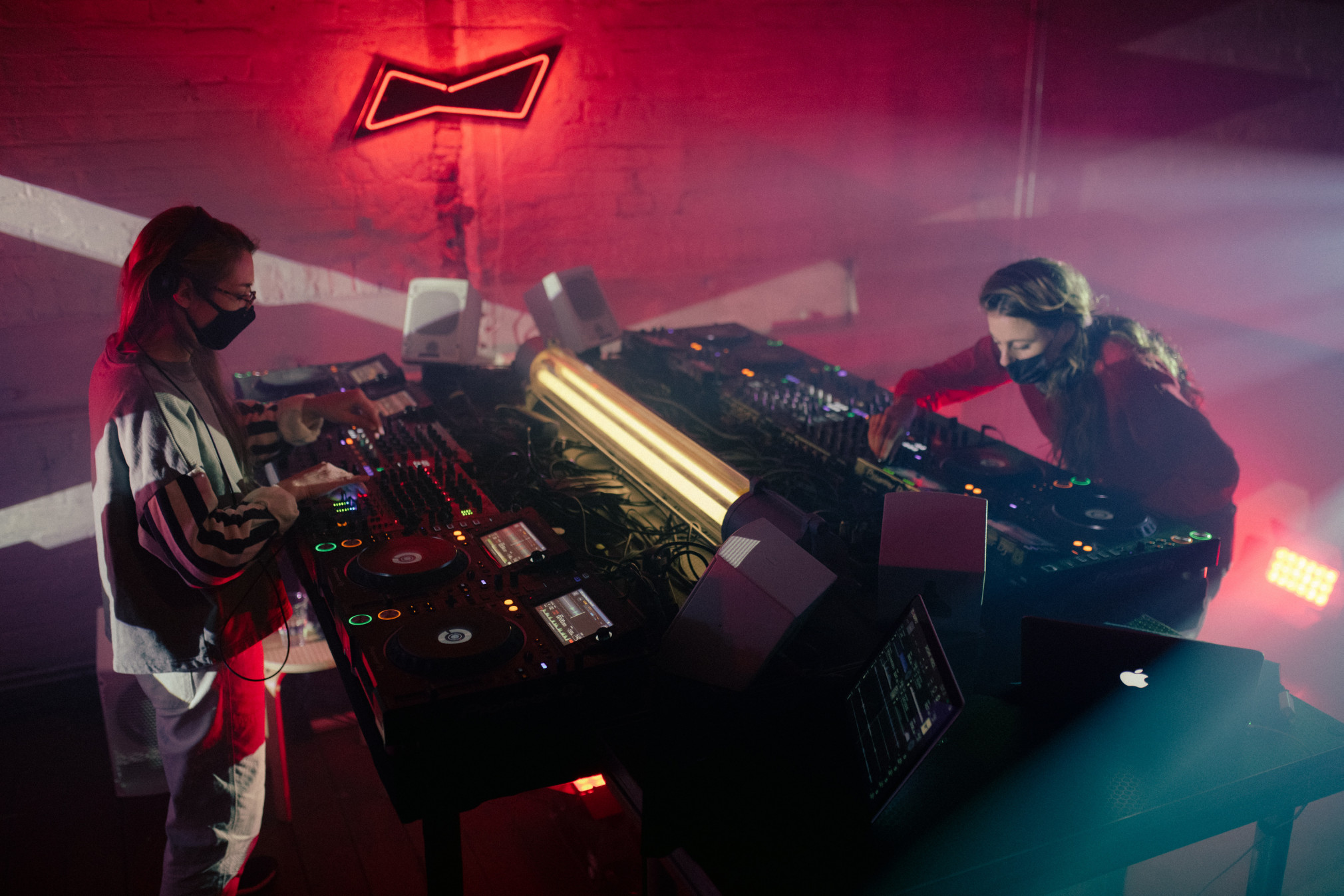
Do you think there are common misconceptions about B2B sets?
Lena Willikens: Honestly, I don’t really like them. I have to start with the term because it implies a sport somehow, and I’m not sportive at all. With Vladimir [Ivkovic], we refuse to use that term and always ask the promoter to announce it as us playing together. We’re a team, we have a conversation and we exchange things – you can even call it symbiosis. I rarely look forward to a B2B where I don’t choose the partner, and that’s why I’m very happy that it’s Merel this time. It totally makes sense. The two of us were talking about how we became DJs; I grew up at Salon Des Amateurs, musically, and Merel started out at Garage Noord. These places have transition moments, so you have to be versatile and sensitive. People are sitting there already, having dinner or a drink, and you have to lead them into the evening. That’s a delicate and interesting moment, where it morphs from a bar or restaurant into a club. I was very impressed when I was having dinner at Garage Noord and Merel started playing. She did it exactly right.
Merel Rhizoom: Thank you! I’ve never been to Salon, actually, I’d love to go…
"What I like is Lena's wide spectrum of sounds, to me that’s more interesting than playing one specific style or genre. There are all these things from different genres that interconnect somehow, even within one set." - Merel Rhizoom
What do you appreciate about Lena’s work, Merel?
Merel Rhizoom: I got the email from Dekmantel and immediately said ‘yes’, of course. [Laughs] What I like is Lena’s wide spectrum of sounds, to me that’s more interesting than playing one specific style or genre. There are all these things from different genres that interconnect somehow, even within one set.
Is there a track you can’t wait to play for a crowd when the clubs re-open?
Lena Willikens: This is the type of question I can’t answer! [Laughs] It’s like picking your favourite colour – impossible. But I have plenty of new things I want to play, for example new music by Marlene Stark, a girl from Berlin, whose LP I really like. What about you, Merel?
Merel Rhizoom: Yeah, it’s a hard question because I don’t like picking favourites.
Lena Willikens: That might be why we’re such a good match!
Merel Rhizoom: At the moment I’m more into making music and in the past months I’ve listened to a lot of Objekt. His productions have so many complementary layers, and I constantly wonder: ‘how the fuck does he do it?’. I want to be able to understand his way of thinking.
Sandrien & Fafi Abdel Nour
Despite 2020 being a bit of a blur, with generally more downs than ups, what do you consider the highlight of your year?
Fafi Abdel Nour: This year has been really weird (and I guess it was weird for a lot of people). Going from a busy lifestyle to almost no lifestyle caused a lot of anxiety. Before the crisis hit, I was focussed on my studies during the week and travelling, playing and socializing during the weekends. When that was suddenly stripped away, I was left back at my house in Groningen – alone with my anxiety. I think I’ve reconsidered how important some friendships are in both normal and rough times. Getting to see my friends again after a long quarantine period kept me going. Also, being able to play again at some venues with certain covid restrictions felt so good! The moment you hear your music on a big sound system after months of silence – for example, at Else Open Air in Berlin – refuelled my tank. It was such a nice feeling to see people dancing and enjoying life again… How has it been for you, Sandrien?
Sandrien: It’s been a difficult time. I miss playing, I miss my friends. However, I don’t feel I have to achieve anything right now. I just have to keep my head up and get through this time, that’s hard enough as it is. In my case, Coronavirus meant finding new ways to keep up financially, because the support offered by the government isn’t enough to cover my monthly costs. Very early on I was able to find a day job, which I’m combining with studying right now. I also had to find a new home with a lower rent. I found one, fortunately, and this month I am going to move. That will relieve a lot of stress. Hopefully, after that I will have more time to focus on music again.
"With buying records, my motto is: if you like it, buy it, don't overthink it. At a later point it all makes sense." - Sandrien
You’ll be playing a special B2B set for Dekmantel Connects. Have you ever played together before?
Fafi Abdel Nour: I’ve never played with Sandrien before, but I am so excited! Every time I saw her play in a club, I was always impressed with her musical diversity. She brings a nice selection of house records to the table in one setting, and plays heart-throbbing techno in another. I think we have some similarities in diversity, as I play sets ranging from disco to more progressive house. It just depends on how I feel or where I’m playing! I’m pretty certain that we will find common grounds during this B2B and I can’t wait for it.
Sandrien: I like Fafi a lot. Although we haven’t played B2B, we did play at the same parties such as IsBurning. I like his old-skool vibe and dreamy tracks. Besides that he’s just a really sweet guy. Before our set Fafi came to visit, we played records and had a fun little sleepover.
Fafi Abdel Nour: You are such a versatile DJ, presenting your own sound in very different situations…
Sandrien: I love that diversity. Ever since I started buying records I bought everything I liked, even though I couldn’t place it in my sets yet or if it didn’t fit in my collection. But after a while, if you collect a lot of different genres, it all connects. You can then play around with it and your sets can be really versatile, ranging from disco to techno. With buying records, my motto is: if you like it, buy it, don’t overthink it. At a later point it all makes sense.
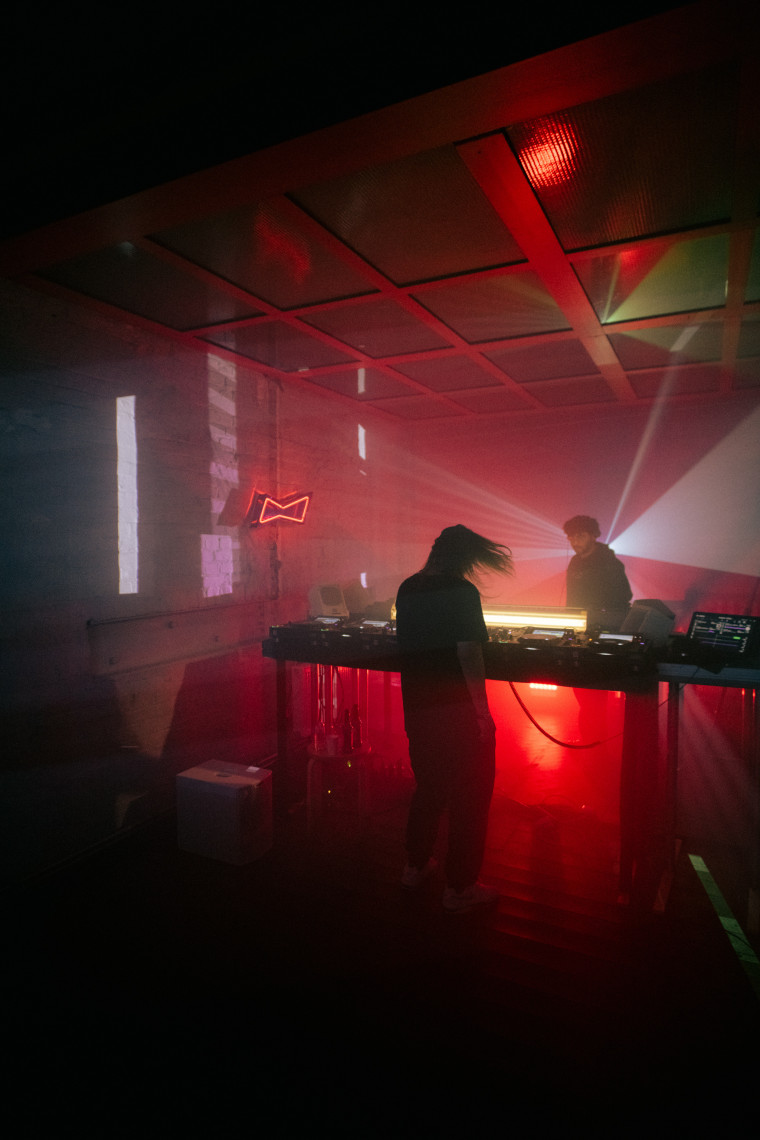
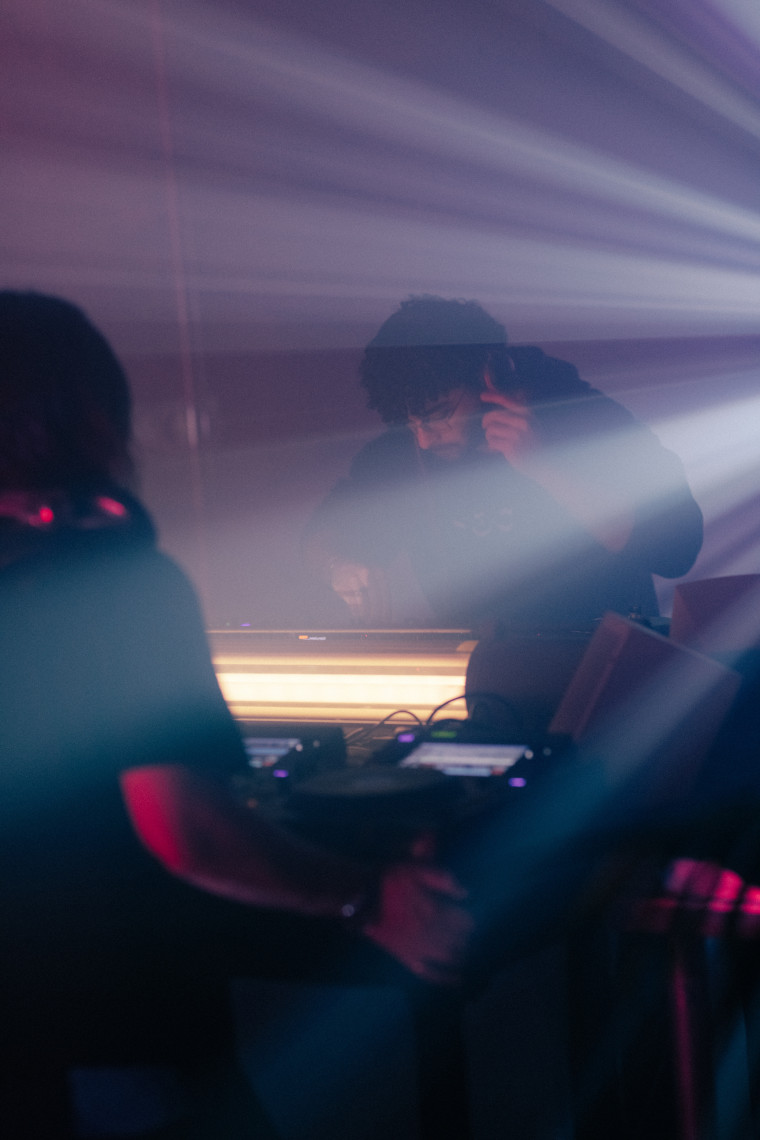
In the past months, have you been able to stay connected to your music/nightlife community?
Fafi Abdel Nour: These strange times also bring a different take on nightlife. It’s so sad to see a lot of clubs closing or struggling and I can’t imagine a world without nightlife. In the past, going to clubs and parties was my way to explore and develop myself. Coming from a somewhat conservative, Christian family, I found myself going to these inclusive places to express built-up emotions that I couldn’t release elsewhere. Of course, this is not really possible anymore and it’s hard to stay connected. The search for new records keeps going, but it just feels a bit depressing that people won’t be able to hear them out loud in a club.
Sandrien: For me, not really; listening to music actually makes me sad at the moment. I also haven’t done any streams, this is the first one since the start of Coronavirus. I do occasionally buy records at Rush Hour or on Discogs. Also, I did some seated events, which was weird but nice as well (as in, nice to hear music on loud volume). I had energy for a couple of weeks again after that. I wish we could be more connected though. It would be great if we had some sort of (virtual) artist get-togethers to discuss our current situation. I feel that’s missing at the moment.
Fafi Abdel Nour: What about the state of the queer community? You have witnessed and worked on the development of queer nightlife for years. How do you feel about it?
Sandrien: Well, the current state is of course miserable. However, before Coronavirus it was really flourishing and it made me very happy to see that there are some many parties gay people could go to. I’m really hopeful for the future and think it’s important for queer people to have a place to go to and connect.
What do you consider the key ingredients of a great B2B? And what is the greatest B2B you have ever heard/experienced?
Sandrien: Spontaneity, surprising each other, also having a nice personal connection gives it something extra. I like continuously reacting and searching for connections in tracks. That way a set goes in directions where they wouldn’t have gone to when you’re playing alone.
Fafi Abdel Nour: Communication and being comfortable with each other. When you both feel the vibe you’re creating, it will transcend into the audience and that’s what you want. In the past I sometimes felt anxious about doing a B2B, but certain gigs reassured me that it’s actually a lot of fun! Playing together with Suze Ijó during De Nieuw felt so good; we were constantly laughing, dancing, rolling joints and having a great fucking time. To me, watching two DJs playing a banger set brings me so much joy, because I can just see the fun they’re having. For instance, Peach and Shanti Celeste or Carista and Elias Mazian… power combos!
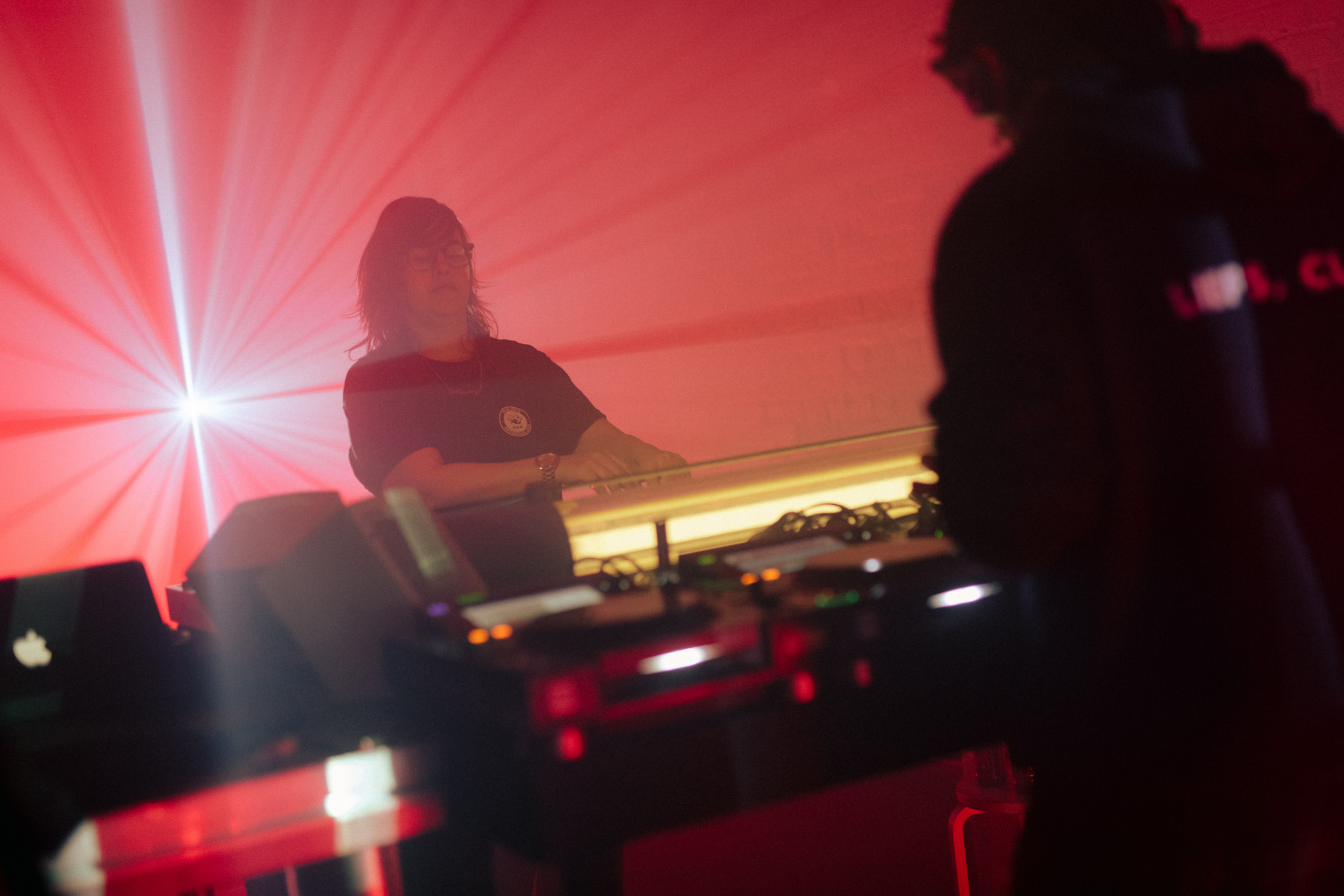
Imagine the clubs were to open next weekend. What’s the first and foremost track you’d love to play for a throbbing, sweaty crowd?
Fafi Abdel Nour: That’s actually a hard question! I’m so bad at making decisions anyway. I really don’t know; they’re all cute in their own way. Recently, my Minor-AM sister Mary Lake released a track called 'Dribble' on United Identities, and one thing I do know for sure is that it will make the crowd sweat for days.
Sandrien: I’ve been thinking about the first set after Coronavirus a lot. I already made a selection of tracks that would be suitable for that occasion. I’m not going to tell you which tracks as it would spoil the surprise, but I honestly can’t wait. I think being together at a club might feel weird in the beginning, maybe everyone will get really claustrophobic. But I think it will soon feel normal again, at least I hope so. I think when we can go out and play again I will party for a year and cry a lot. [Laughs] Can’t wait for that.
"This year has brought me a day-by-day mindset, and I don't want to think too far ahead. We have to reconsider the importance of nightlife and try our best to keep it alive." - Fafi Abdel Nour
All the 2020 misery aside, what’s your biggest wish for 2021?
Fafi Abdel Nour: This world has been burning for ages but it seems that only now we’ve opened our eyes somewhat to see the flames. I really hope this world will unite in some way, as we’re all in this together.
Sandrien: Did you acquire a new philosophy during Coronavirus that will help you when life goes back to ‘normal’?
Fafi Abdel Nour: This year has brought me a day-by-day mindset, and I don’t want to think too far ahead. We have to reconsider the importance of nightlife and try our best to keep it alive. I just hope that ’21 will shine some light on the dark days we’re in right now.
Photos by Tim Buiting
